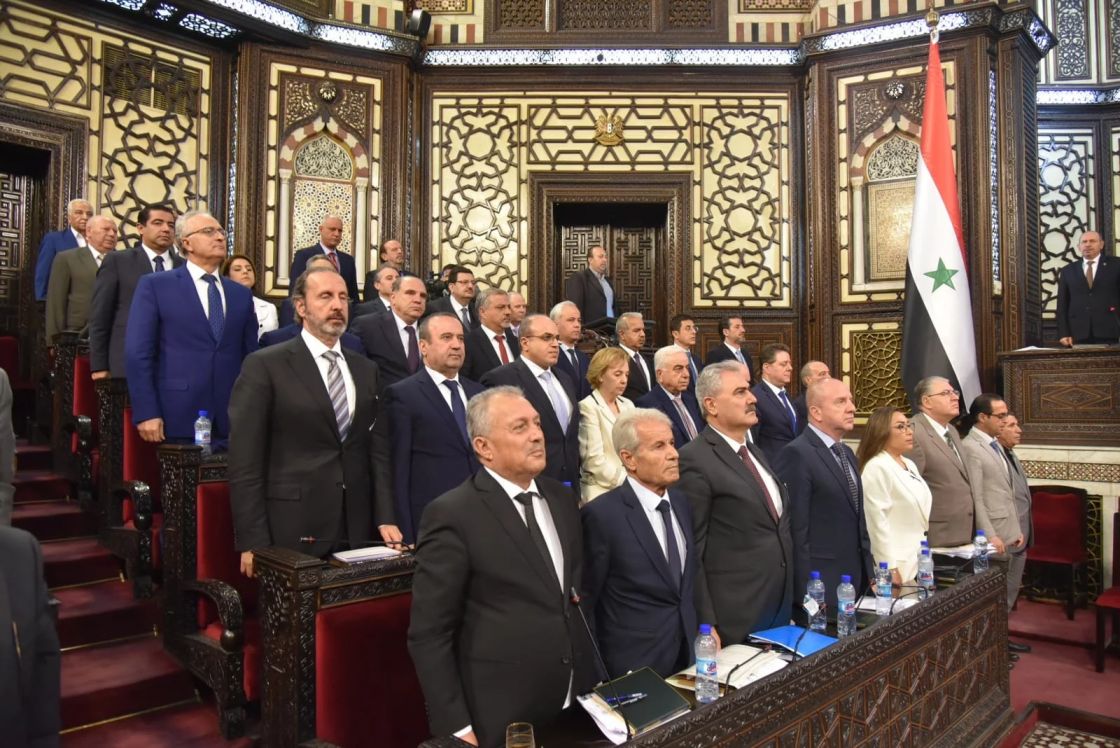- Editorials
- Posted
Kassioun Editorial 1133: Neither the Government Governs nor the People’s Assembly Legislates!
The tension and uproar that took place last week about the exchange rate, the living situation, the extraordinary session of the People’s Assembly, and the government’s behavior during it, reflect a deep crisis whose roots go back to 2005. That year implementation of liberal policies began under the name of the “social market economy”, in accordance with the recommendations and demands of the IMF and the World Bank. This continues to this day and with greater acceleration than ever before.
Last week’s “uproar” is not an ordinary episode among the episodes of uproar and release that Syrians have become accustomed to over the past decade. Rather, it is a truly “extraordinary” episode, because it represents, and according to what the Prime Minister said on the People’s Assembly platform, the last episode in the liberalization process. It was practically announced going towards ending the subsidy policy once and for all, and liberalization of the exchange rate. In a word, there was announcement of completion of going towards ending any interventionist role of the state, and that the people must figure out things on their own.
The persistence and insistence on fulfilling to completion liberal policies according to the recipes of the Western center is incomprehensible and even surprising if we want to assume good intentions. It is not difficult for anyone today to understand that economic liberalization is one of the three pillars with which Syria is being burned down; the three pillars being: the socioeconomic file, the military-security file, and the moral-cultural file.
Just as the process is “liberal” in the economic file, the same applies to the other two files. In practice, the civil state apparatus is not only being privatized by removing its social interventionist functions, but in parallel – if we look at the entire Syrian map with all its areas of control – the military-security sector is being privatized, and the exclusivity of weapons is ended in favor of a number of exclusives, including those of a militia nature. In the moral-cultural file, the steps to assassinate the spirit of Syria and Syrians continue, whether through changes in the curricula, or through the repeated “unintended mistakes” of normalization here and there, including the Sarouja fire, which unfortunately is not expected to be the last step.
A close look at the current Syrian Constitution and at the facts, is sufficient to lead to a clear conclusion: the government in Syria does not govern and the People’s Assembly does not legislate, which is looked at in more detail in a Kassioun Research Unit article in this issue. Thus, public debate and discussion should be protected from superficially pondering the phenomenon, and instead the door should be pushed open before the public in order to penetrate that surface to realize and know what is really going on, and why it is happening.
Let us rearrange the matter. With the continued absence of a political solution, through the absence of actual implementation of UNSC Resolution 2254, that is, by closing the door to a comprehensive and radical change that includes, among other things, a logical redistribution of powers among the state’s authorities, what continues to be applied on the ground in Syria is the Western neoliberal scheme with its three coordinates:
First: An economic liberalization that would end the role of the state’s social apparatus, by ending subsidies, but also ending the employment guarantee policy, not to mention the continuation of economic linkage to the dollar, and being satisfied with turning Easy with slogans only.
Second: The gradual privatization of the security and military sectors so that the military aspect of the state apparatus’s function is undermined, after the civil aspect has been undermined.
Third: The assassination of the spirit and culture of Syria and Syrians, using various means and methods.
In view of all these facts, and steering clear off slipping into side clashes and an exchange of responsibilities between the People’s Assembly and the Government, the main question that should be put on the table is: Why all this? What is the purpose? Who benefits therefrom?


